Have you ever wondered why some people love gardening and treat their plants like prized possessions? I will share my gardening story here today, starting with my childhood. My grandmother introduced me to gardening. We would spend time planting and caring for different crops in her beautiful backyard.
I’ll share why I love gardening and how it has become an important part of my life. You will also learn about the scientifically proven benefits of gardening, from reducing stress to improving mental health.
Get ready to dig in. Understanding why people love gardening might inspire you to pick up a trowel and join the fun.
7 Key Takeaways on My Love for Gardening
- My grandmother introduced me to gardening and made it a cherished family tradition.
- Gardening with family can create lasting memories and strengthen relationships.
- I faced many challenges in gardening but learned and grew from each one.
- Gardening offers peace and relaxation, reducing stress and improving heart health.
- Growing my own fruits and vegetables provides nutritious, fresh food and a sense of accomplishment.
- Gardening helps reduce carbon footprints, increase biodiversity, and conserve water.
- Gardening allows me to express my creativity, transforming my space into a beautiful, ever-changing work of art.
My Gardening Story: From Novice to Enthusiast
I’m sharing my story about starting a garden, from the first feeling that inspired me to the challenges that made me doubt my gardening skills. Whether you’re new to gardening or have been doing it for years, I hope my gardening journey resonates with you.
My Love of Gardening – The Initial Spark
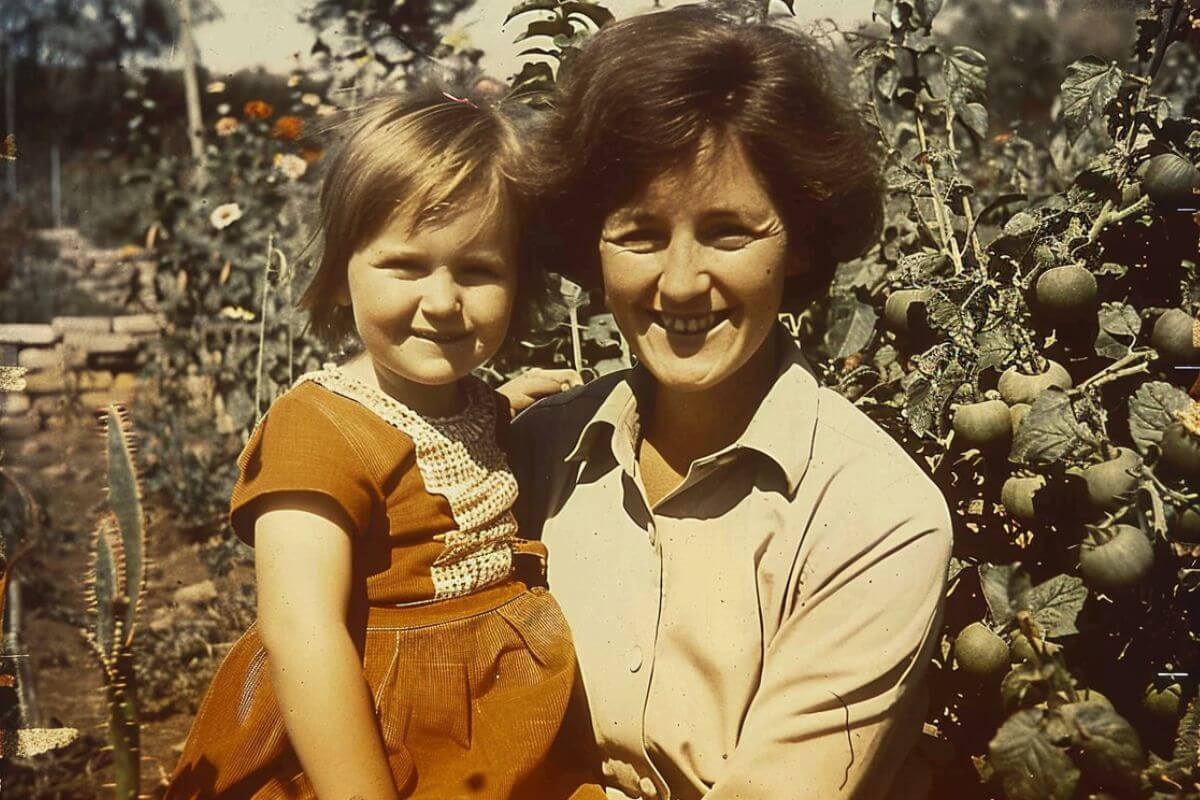
I always admired my grandmother Jenny’s gardening skills. But it wasn’t until a sunny afternoon in her backyard that I became interested in gardening myself. We were there to grow tomatoes. She handed me a tiny seedling and shared stories of her own grandmother doing the same. It’s a family tradition!
Over time, the tiny seedling had grown into a large tomato plant with many juicy red tomatoes. Harvesting those tomatoes with my grandma was a joy I won’t forget. We spent hours in her kitchen making delicious homemade spaghetti sauce out of them. Just the smell alone brought back so many memories.
My time in the garden with my grandma showed me that gardening is more than just a hobby; it’s a way to connect with our roots — literally and figuratively. The garden became something we both loved, bringing us closer together and creating a strong bond. Now, I share that same bond with my daughters.
If the garden is your favorite place, consider inviting other family members to join you in the dirt. It’s a great way of bonding with people. The memories you’ll create will be worth every ounce of soil.
Overcoming My Challenges With Gardening
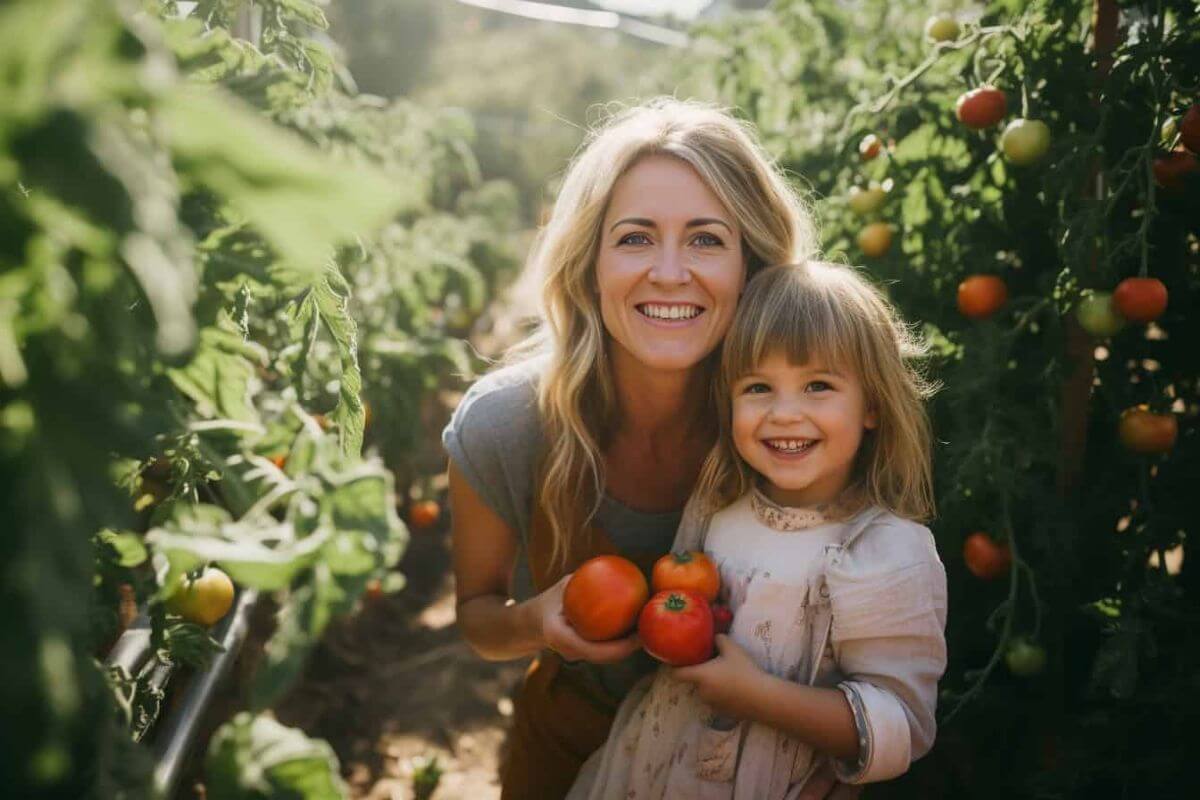
Gardening isn’t all sunshine and blooming roses. It has its thorny moments, but the good thing is that every setback teaches us to be strong.
My first attempts at all aspects of gardening didn’t go very well. I watered the plants too much, didn’t realize how important sunlight was, and neglected to take care of the soil. It was a learning experience, to say the least.
But I didn’t give up. Instead, I saw these moments as opportunities to learn. I read books, went to workshops, and asked experienced gardeners in my community for advice.
I’ll share some other challenges I faced with gardening and the life lessons I learned:
- Bugs – Dealing with annoying bugs can be a big problem for gardeners. When I first dealt with aphids, my beautiful roses suffered a lot. Instead of using chemical sprays, I used natural ways to control pests. I brought helpful bugs like ladybugs and lacewings to my garden and planted companion plants.
- Soil – I learned that different soil types pose challenges for my plants. To address this, I became knowledgeable about soil. I improved my clay soil with compost. I added organic matter to my sandy beds. I also tried using raised beds and containers for more control over the growing medium.
- Weather – Mother Nature can be unpredictable, from scorching heat to unexpected frosts. I lost some of my favorite plants due to extreme weather, but I started planting with the climate in mind instead of getting upset. I used drought-tolerant plants and protective coverings like shade cloths and frost blankets to help my strong plants thrive.
I encountered many challenges, but each one helped me become a better gardener and more determined to succeed. Gardening has shown me that setbacks are just opportunities in muddied overalls.
Reasons Why I Love Gardening
Gardening is more than just a hobby for me. I find joy and peace in it. In the following sections, I will explain why I love gardening and how it enriches my life.
1. Gardening as My Therapeutic Escape
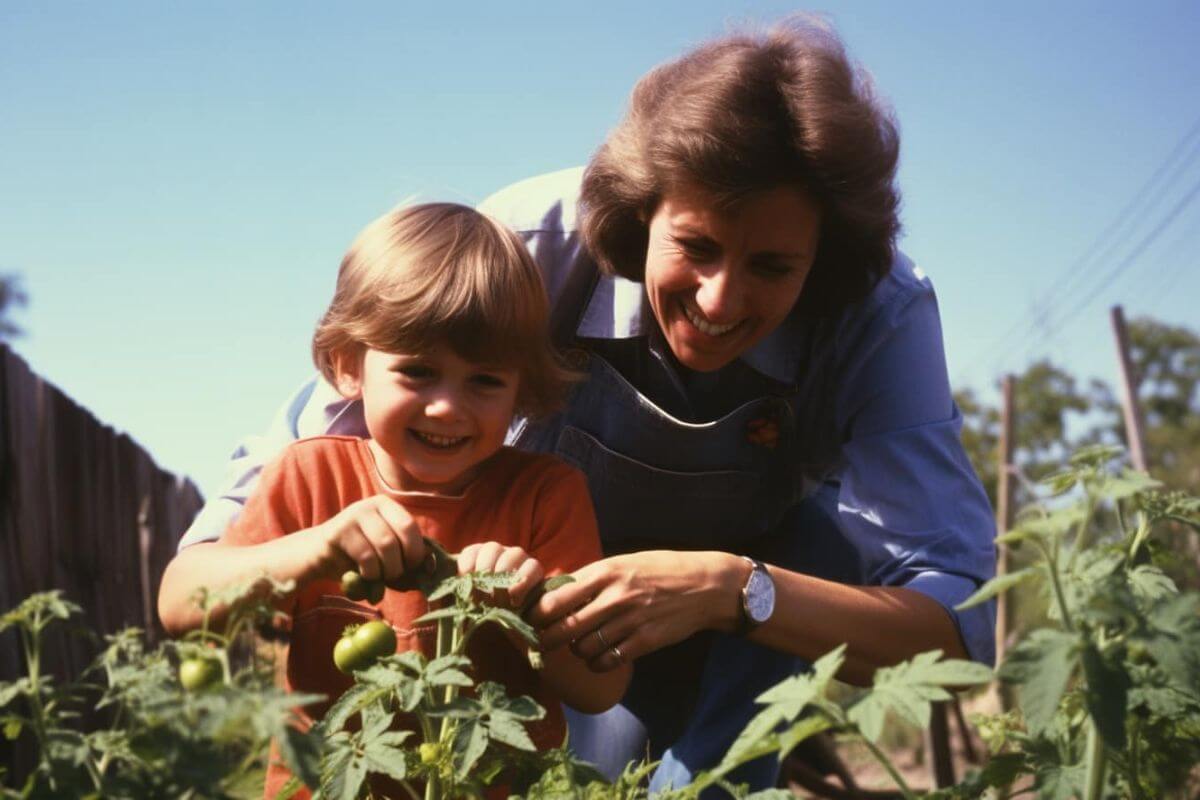
Gardening is my refuge, sanctuary, and personal therapist. Everything else fades away when I enter my garden. Caring for plants in this lovely space, feeling the soil, and watching them grow brings peace and joy to people who experience it.
Research shows that spending time in nature can help reduce stress and anxiety and lower blood pressure (source). Gardening also improves your heart rate, making it heart-healthy.
Gardening is calming because it engages multiple senses. You see bright colors, feel soft petals, and smell earthy scents, contributing to your overall peace. This moment with nature relaxes me, and you’ll be surprised at how this simple act can transform your mental state.
2. Gardening as My Lifelong Learning Pursuit
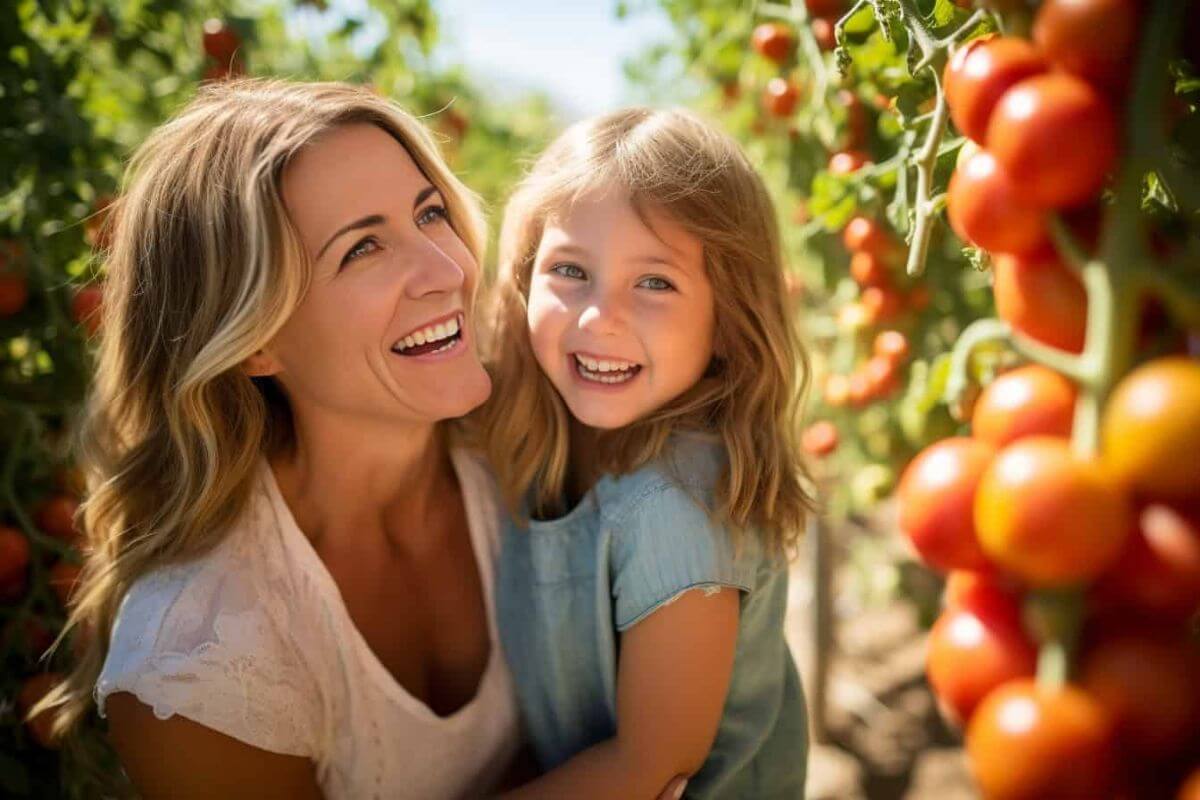
Gardening is a lifelong journey of learning. It’s always changing and requires us to stay open to new knowledge. It’s like finding a hidden library, where each plant and plot offers something new to discover.
The more time I spend in the garden, the more I realize that the soil is not just a place for plants to grow — it’s also fertile ground for my personal growth.
Here are a few of the many skills and insights gardening has taught me:
- Creative Problem-Solving – Every season brings challenges, like pests, diseases, and climate issues. But these problems also create opportunities for innovation. You can try approaches like companion planting. You can also use homemade remedies. Or, you can just observe and adapt.
- Experimentation – Gardening is a fun and interesting hobby for curious people. Over the years, I have tried growing different types of plants. Some of my experiments succeeded. Others taught me about resilience and letting go.
- Patience – Gardening teaches us that good things take time. It shows us the value of patience and care. When we see the first shoots or blooms, it feels even more rewarding.
Gardening isn’t just about turning empty land into lush gardens. It has made me a lifelong learner and enhanced my awareness of life. It’s a journey of never-ending fascination and self-discovery, all sparked by planting and watching a seed grow.
3. Gardening as My Source of Fresh, Nutritious Food
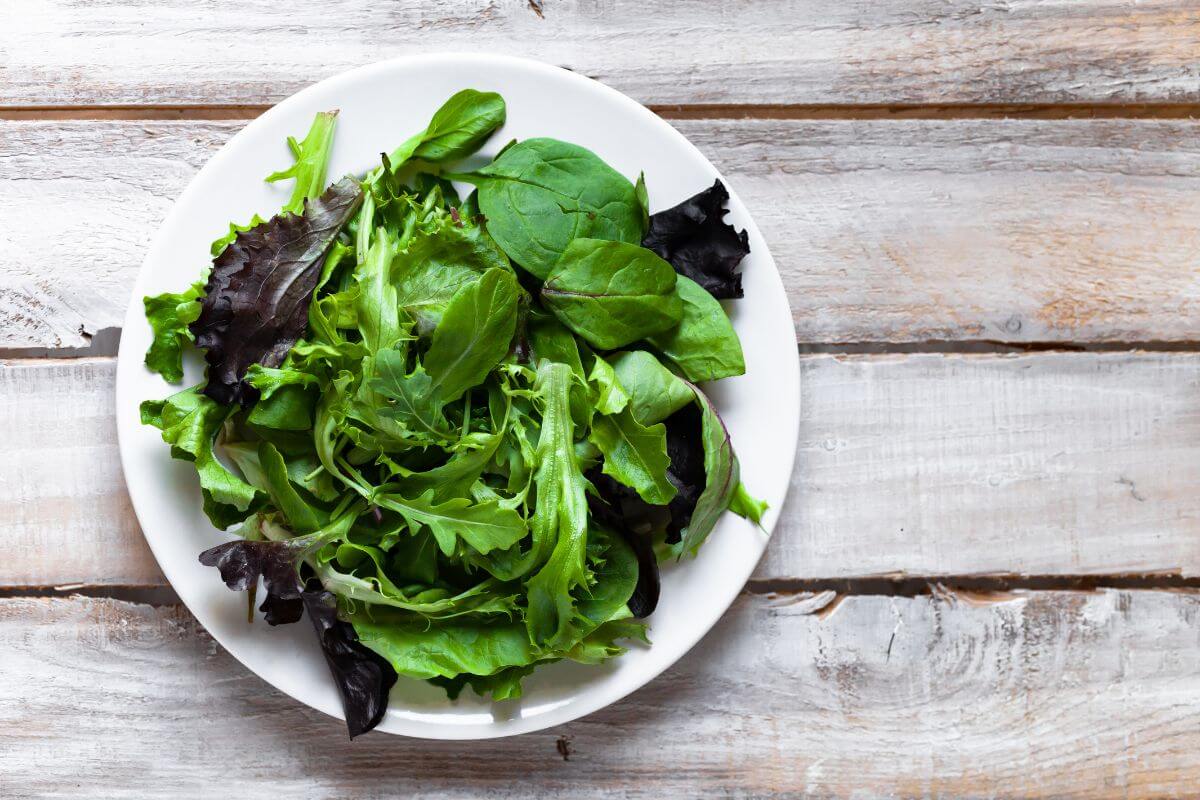
My garden is not just a piece of land; it’s where I grow fresh, healthy food. Gardening has changed the way I think about food. The happiness I feel when I pick a ripe tomato or bite into a freshly harvested cucumber is amazing. It’s not just about the taste; it’s about the incredible nutrition.
Here’s how growing your own delicious produce can be a game-changer for your diet:
- Nutritional Superiority – Growing your own fruits and vegetables at home can result in produce that tastes better. It is also more nutritious than the store’s. This is because you have full control over the soil quality, the fertilizers, and the methods used to control pests.
- Rich in Antioxidants – When you grow your own crops, you can enjoy them at their best. They’re packed with vital antioxidants that are good for your health.
- Variety and Seasonality – Ever wondered why a tomato from the farmers’ market tastes better than one from the supermarket in the winter? Homegrown produce lets you try different varieties of plants and fruit-bearing trees and enjoy food when it’s in season and at its best.
- Reduced Chemical Exposure – Controlling plant growth can help you avoid or reduce synthetic pesticides and herbicides. This helps ensure that your food is as clean and safe as possible.
I find it satisfying to know that the food on my plate comes from just steps away. I eat mindfully, savoring each bite. I appreciate the journey from seed to table. I’ve learned that the freshest, healthiest food is not just an indulgence. It’s a daily celebration of nature’s gifts.
4. Gardening’s Positive Environmental Impact
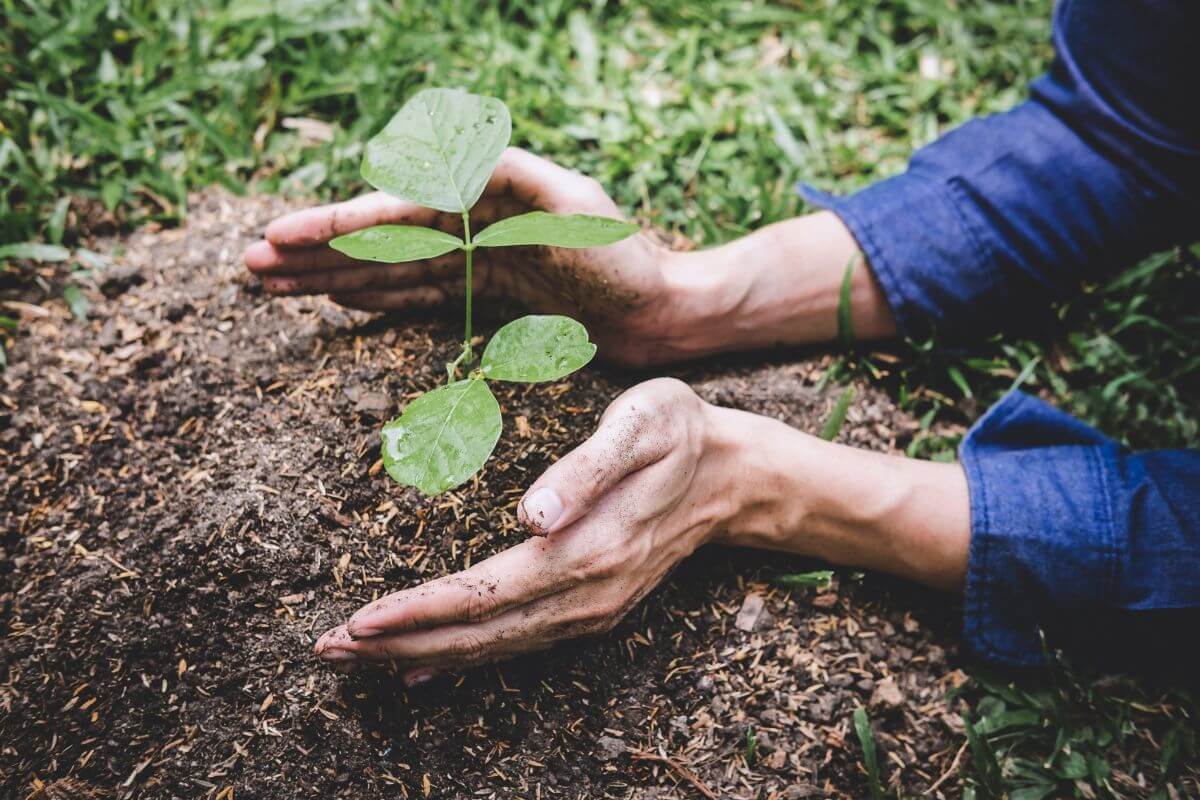
Gardening is not just about making our surroundings beautiful. It is also about taking care of the earth we live on. Gardening has a big positive effect on the environment and goes beyond just the surface.
Let me walk you through some of the key reasons gardening is good for the environment:
- Carbon Footprint Reduction – By growing my own food, I’ve reduced the produce I buy from stores. Store-bought produce often travels long distances, adding to carbon emissions. I also compost kitchen scraps and yard waste. This reduces the organic matter that goes to landfills. It helps stop the creation of harmful greenhouse gases.
- Increased Biodiversity – I planted various plants and wildlife-friendly trees in my garden. I’ve created homes and food for pollinators, birds, and helpful insects. Watching these different species thrive in my garden has made me realize how important it is to conserve and protect the intricate web of life.
- Water Conservation – I use smart watering methods, including collecting rainwater and using drip irrigation. They have helped me use less water. Putting mulch on garden beds keeps the soil moist, so I don’t have to water as much.
- Soil Health and Conservation – I’ve improved my soil’s health. I did this by switching from synthetic fertilizers to organic amendments and compost. This has made the soil more resilient and less likely to erode. Practices like crop rotation and cover cropping keep the soil’s structure and fertility good. They stop nutrients from running off into nearby water bodies.
Gardening may seem small, but it greatly impacts the environmental balance when many people garden. It has given me a real way to help the environment, making me feel a strong connection to wildlife and our planet.
5. Gardening as My Creative Outlet
I’ve always loved art, but it wasn’t until I started gardening that I found a truly dynamic creative outlet. Gardening is like painting with nature. I’m the director, and the plants are my actors. Every step allows me to use my artistic instincts, from planning to seeing the changes each season.
My garden is like a blank canvas. I can shape it with my ideas and a few basic design principles. Planning the layout of beds, walkways, and focal points is where the fun begins. Choosing beautiful plants with colors, textures, and heights creates a masterpiece.
You must capture your artistic vision to create a successful garden design plan. You must also think about the practical aspects of your space and climate. By thoughtfully placing plants of different heights and textures, you can add depth and layers to your landscape.
Your garden is always changing. Feel free to try new things, take risks, and let your personality show. It’s a way to express yourself, whether in an outdoor garden or an indoor space. A touch of nature makes every environment more vibrant and personal, adjusting to the pace of life around it.
My Love for Gardening Final Thoughts
Gardening has taught me patience, resilience, and the beauty of life’s cycles. It’s given me a sense of purpose, a sanctuary to retreat to, and the joy of nurturing something from seed to bloom. In the garden, I’ve found solace during difficult times and celebration during moments of triumph.
I highly recommend it if you haven’t started this green journey yet. The benefits are varied, like the flowers in a meadow. They offer a break from city life. They are a chance to grow as a gardener and person. And they bring the joy of watching life thrive under your care.
Don’t forget the satisfaction of growing your own fruits and vegetables in the summer. From crunchy lettuce to juicy tomatoes, the rewards are visual and delicious. There’s a sense of accomplishment in knowing that you contributed to the growth and nourishment of these plants.
So, get a trowel, put your hands in the soil, and let gardening change your life. It’s a love affair that will only strengthen over time, enriching your beautiful life.
What’s Your Gardening Story?
Now it’s your turn to step into the spotlight. I want to hear your amazing stories about gardening, your successes, and even your epic failures. Gardening is a journey we all take, and each journey is unique.
Share your experiences to help us build a connected community of advocates of gardening. We aim to celebrate gardening’s joy and learn from its challenges. By sharing your story, you can deepen our understanding of gardening. Plus, it will inspire others to start and explore new things.
Whether you have a big backyard or just a single windowsill, your opinion is important, and I’m excited to hear it. The garden is a place for plants and us to grow, so let’s grow together.
My Love for Gardening FAQs
1. What Is a Person Who Loves Gardening?
People who enjoy gardening are often called gardeners or horticulturists. They like growing and caring for plants and find happiness and relaxation in this activity.
2. Is Gardening a Girly Hobby?
Gardening is not a girly hobby. People of all genders enjoy it. It offers benefits and pleasures that appeal to a wide range of individuals.
3. Why Do Humans Like Gardening?
Gardening is popular because it brings a sense of calm and a connection with nature. It also provides exercise and stress relief. It’s a multi-sensory experience that promotes well-being. Watching plants grow and thrive gives us a feeling of satisfaction and fulfillment.
4. Does Gardening Release Dopamine?
Engaging in gardening activities, such as planting and harvesting, can trigger dopamine release. It is a neurotransmitter linked to pleasure and reward. It adds to happiness and satisfaction.
5. Does Being Around Plants Make You Happy?
Being around plants can make you happy. Plants can reduce stress and improve mood. They enhance well-being through their calming presence and connection with nature.
Learn more about gardening through these interesting reads:

